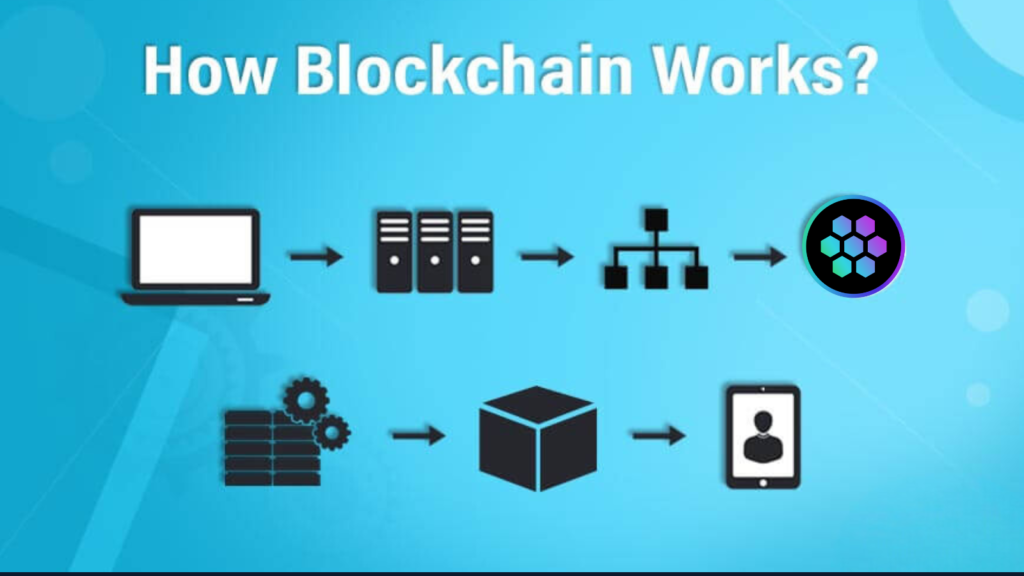The rise of blockchain technology has brought with it numerous benefits, especially in terms of transparency and security. However, with the increasing use of blockchain networks, questions around privacy are gaining attention. As the world becomes more interconnected, the need to protect personal data and maintain privacy grows stronger. In this blog, we will explore the “Blockchain Network Impact on Privacy” and how it is shaping the future of digital privacy.
Understanding Blockchain Technology
Blockchain technology is a decentralized system that enables peer-to-peer transactions without the need for intermediaries like banks or governments. It’s a digital ledger where all transactions are recorded across multiple computers, ensuring transparency and security. While blockchain promises to bring an unprecedented level of trust in various industries, it also raises important questions regarding user privacy.
Blockchain operates on a model that is open and transparent by design, allowing everyone to view the transactions on the network. This might seem counterintuitive to privacy, especially in a world where people are more concerned than ever about the protection of their personal data.
Why Privacy is a Critical Issue
Privacy is a fundamental right in the digital age. As more personal information becomes digitized, there’s a growing concern over how that data is stored, accessed, and used. Traditional centralized systems are prone to breaches, exposing sensitive data to hackers and unauthorized parties. Blockchain networks, while more secure, still pose challenges when it comes to ensuring privacy. Therefore, understanding the Blockchain Network Impact on Privacy is crucial as we transition to more decentralized systems.
How Blockchain Works
Decentralized Ledgers and Transparency
Blockchain technology revolves around decentralized ledgers, where data is shared and verified across multiple nodes rather than stored in a single location. Every transaction is recorded in blocks and added to a chain, which is visible to everyone within the network. This transparency ensures that transactions are immutable and cannot be altered once recorded.
While this level of transparency strengthens security, it can also compromise user privacy. For example, public blockchains allow anyone to trace the history of transactions, which may reveal sensitive information about users’ spending habits or financial data. Thus, the Blockchain Network Impact on Privacy requires careful consideration to balance transparency with privacy protection.
Privacy Concerns in Traditional Digital Systems
Challenges in Centralized Systems
In traditional digital systems, data is often stored in centralized databases controlled by a single entity, such as a corporation or government. This centralized approach creates a single point of failure, making it easier for hackers to access large volumes of personal information through breaches. Moreover, the centralized nature means users must trust these institutions to handle their data responsibly, but data misuse and privacy violations are common.
These challenges in centralized systems have led to a search for alternatives, with blockchain technology emerging as a promising solution. However, it’s important to understand how the Blockchain Network Impact on Privacy differs from traditional systems and whether it can address these concerns effectively.
Blockchain’s Role in Enhancing Privacy
Anonymous Transactions and Public Keys
One of the ways blockchain enhances privacy is through the use of anonymous or pseudonymous transactions. Instead of identifying users by their real names, blockchain networks use cryptographic addresses, also known as public keys. Each user has a unique address, which makes it difficult to directly link transactions to a person’s real identity.
However, while this setup offers a degree of anonymity, it is not foolproof. Sophisticated techniques can be used to analyze transaction patterns and potentially deanonymize users. This highlights the Blockchain Network Impact on Privacy, as more advanced privacy features are needed to protect users’ identities fully.
Role of Cryptography in Safeguarding User Identities
Blockchain relies heavily on cryptography to secure transactions and protect user data. Encryption techniques ensure that data shared on the blockchain remains private and accessible only to those with the correct decryption keys. Cryptographic methods like hash functions and digital signatures add additional layers of security, ensuring that users’ identities remain protected.
Still, the Blockchain Network Impact on Privacy depends on the effectiveness of these cryptographic techniques and whether they can keep up with the evolving threats in the digital world.
Types of Blockchains and Their Privacy Features
Public vs Private Blockchains
There are two main types of blockchains: public and private. Public blockchains, like Bitcoin and Ethereum, are open to anyone, allowing users to participate in the network without permission. This openness brings with it concerns over privacy since all transactions are visible to the public.
On the other hand, private blockchains require permission to join and are typically used by organizations for internal operations. Private blockchains offer better privacy controls, as access to the ledger is restricted to authorized users. This distinction between public and private blockchains plays a crucial role in determining the Blockchain Network Impact on Privacy.
Pros and Cons of Each Type
- Public Blockchains: Provide transparency and security but can compromise privacy since all transactions are visible.
- Private Blockchains: Offer better privacy protections but are less decentralized, which can lead to trust issues.
Understanding the differences between these blockchain types is essential to assessing how they contribute to privacy protection in a digital environment.
Privacy Solutions within Blockchain Networks
Zero-Knowledge Proofs
Zero-Knowledge Proofs (ZKPs) are one of the most promising privacy solutions in blockchain networks. ZKPs allow users to prove that a statement is true without revealing any underlying information. For example, a person could prove that they have enough funds for a transaction without disclosing the exact amount. This method significantly enhances privacy, making it harder to trace user activity.
By implementing ZKPs, the Blockchain Network Impact on Privacy can be improved, providing stronger protections for users’ sensitive data.
Confidential Transactions
Confidential transactions are another approach to enhancing privacy in blockchain networks. These transactions hide the transaction amount while still allowing the network to validate the transfer of funds. This method prevents third parties from seeing how much money is being exchanged, adding an additional layer of privacy.
Mixing Protocols
Mixing protocols, also known as coin mixing or tumbling, are privacy-enhancing techniques that shuffle users’ transactions to obscure their origin. By mixing transactions from multiple users, it becomes difficult to trace specific transactions back to their original sources. Mixing protocols are already being used in several blockchain applications to protect user privacy.
Unlock the future of digital security with SRP Token! Invest now to be part of a revolutionary blockchain network that ensures unparalleled privacy and protection.
Real-World Applications of Blockchain for Privacy
Financial Sector
In the financial sector, privacy is crucial for protecting users’ financial information. Blockchain networks offer a solution by enabling anonymous transactions and secure data storage. With advanced privacy features, blockchain can help prevent fraud and protect sensitive financial data, illustrating the positive Blockchain Network Impact on Privacy.
Supply Chain
In supply chain management, blockchain offers transparency while still safeguarding proprietary information. Companies can track goods across the supply chain without revealing trade secrets or sensitive business data.
Privacy Challenges in Blockchain Networks
Data Immutability and Traceability
One of the primary challenges of blockchain is its immutability. Once data is recorded on the blockchain, it cannot be altered or deleted. While this enhances security, it can create privacy issues if sensitive information is accidentally recorded on the blockchain. The permanent nature of blockchain means that personal data could be exposed indefinitely.
Regulatory Issues
Compliance with data protection regulations, such as the GDPR, poses a challenge for blockchain networks. The decentralized nature of blockchain makes it difficult to determine who is responsible for ensuring compliance. As governments continue to regulate data privacy, the Blockchain Network Impact on Privacy will be shaped by how well blockchain systems can adapt to these regulatory frameworks.
The Future of Privacy in Blockchain Networks
Emerging Privacy Technologies
As blockchain continues to evolve, new privacy-enhancing technologies are being developed. From advanced cryptographic techniques to decentralized identity solutions, the future of blockchain privacy looks promising. These innovations could revolutionize how privacy is protected in digital transactions.
Potential for Widespread Adoption
As privacy concerns grow, blockchain networks with robust privacy features will become more attractive to users and businesses alike. The Blockchain Network Impact on Privacy could lead to a new era of secure, decentralized systems that protect individuals’ data from exploitation.
Conclusion
In conclusion, blockchain networks offer a unique combination of transparency and security, but they also pose challenges to privacy. By implementing advanced privacy features like Zero-Knowledge Proofs and confidential transactions, blockchain can enhance user privacy and address the limitations of traditional digital systems. The Blockchain Network Impact on Privacy will continue to evolve, shaping the future of how we protect personal data in the digital age.
As more industries adopt blockchain technology, the focus on privacy will become even more critical, paving the way for a more secure and private digital landscape.

 China
China Russia
Russia India
India









